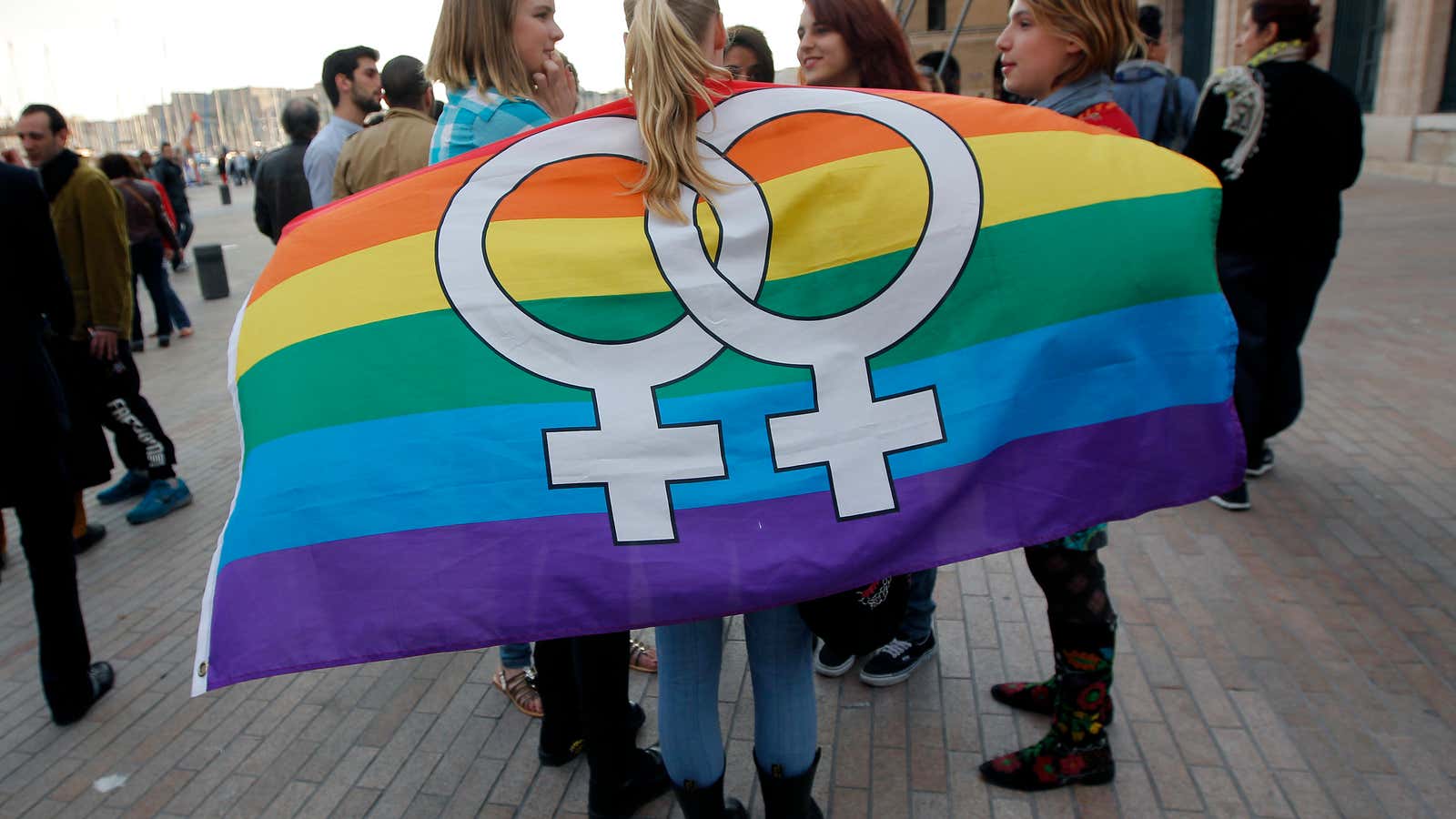Today, French women can’t get fertility treatments unless they’re married. A French law passed in 2013 banned treatments such as in vitro fertilization (IVF), artificial insemination, and sperm donation for homosexual couples and single women. Now, president Emmanuel Macron’s government is drafting a law that wouldn’t just permit those procedures for gay and unmarried women—it would make them free under the country’s national health insurance, the AP reports.
Over the past few decades, homosexual couples and unmarried women in France that wanted children had to get creative. French women are spending up to €5,000 (about US$5,600) to receive a single round of IVF in private clinics in neighboring countries like Spain and Belgium. Some women who cannot afford IVF have turned to ordering donor sperm online, a risky practice that can lead them to contract diseases or be legally taken advantage of.
French prime minister Édouard Philippe introduced the bill earlier this year in an effort to win back leftwing supporters who feel Macron is a president for the wealthy. The new bill would guarantee each woman four rounds of assisted reproduction (IVF or artificial insemination) per pregnancy. The treatment will be available only to patients within a certain age range that has not yet been determined. The bill wouldn’t change the country’s laws around surrogacy, which would still be illegal.
In 2013, France passed a law allowing same-sex couples to marry and adopt children. It was just the 13th country worldwide with such laws, putting France at the forefront of LGBTQ rights. But lawmakers appeared out of step with most French people. Citizens took to the streets in protest; there has been an uptick in the number of homophobic attacks since the legalization of same-sex marriage.
Still, the French government has repeatedly considered creating legal measures to open up fertility treatments to women outside heterosexual marriages. In 2017, France’s highest bioethic body, the National Consultative Ethics Committee, proposed that access to medically assisted reproduction should be legalized for lesbian and single women. The initiative never progressed past the initial stages because the government feared that conservative and religious groups would riot.
Though lawmakers expect this bill to be met with protests, Philippe and his supporters are more confident that the bill could pass this time. In a meeting with parliament in June, Philippe stated that he believes France had reached a point of being able to “calmly, profoundly and seriously debate” the issue, the AP reported.
The new law will go to a vote in France’s parliament in September.
